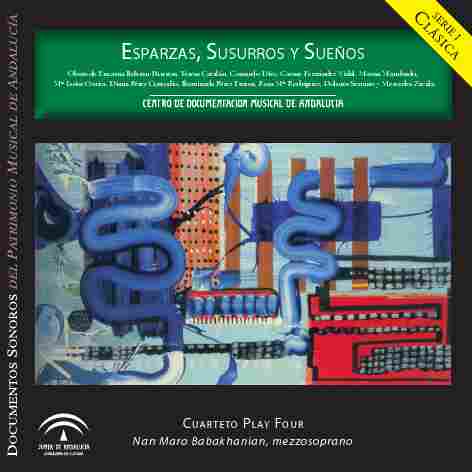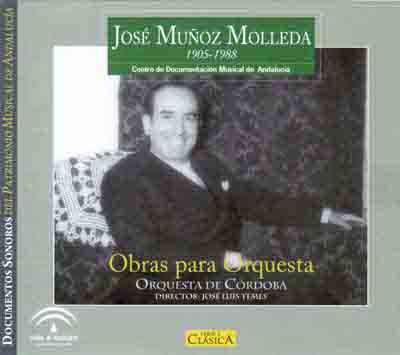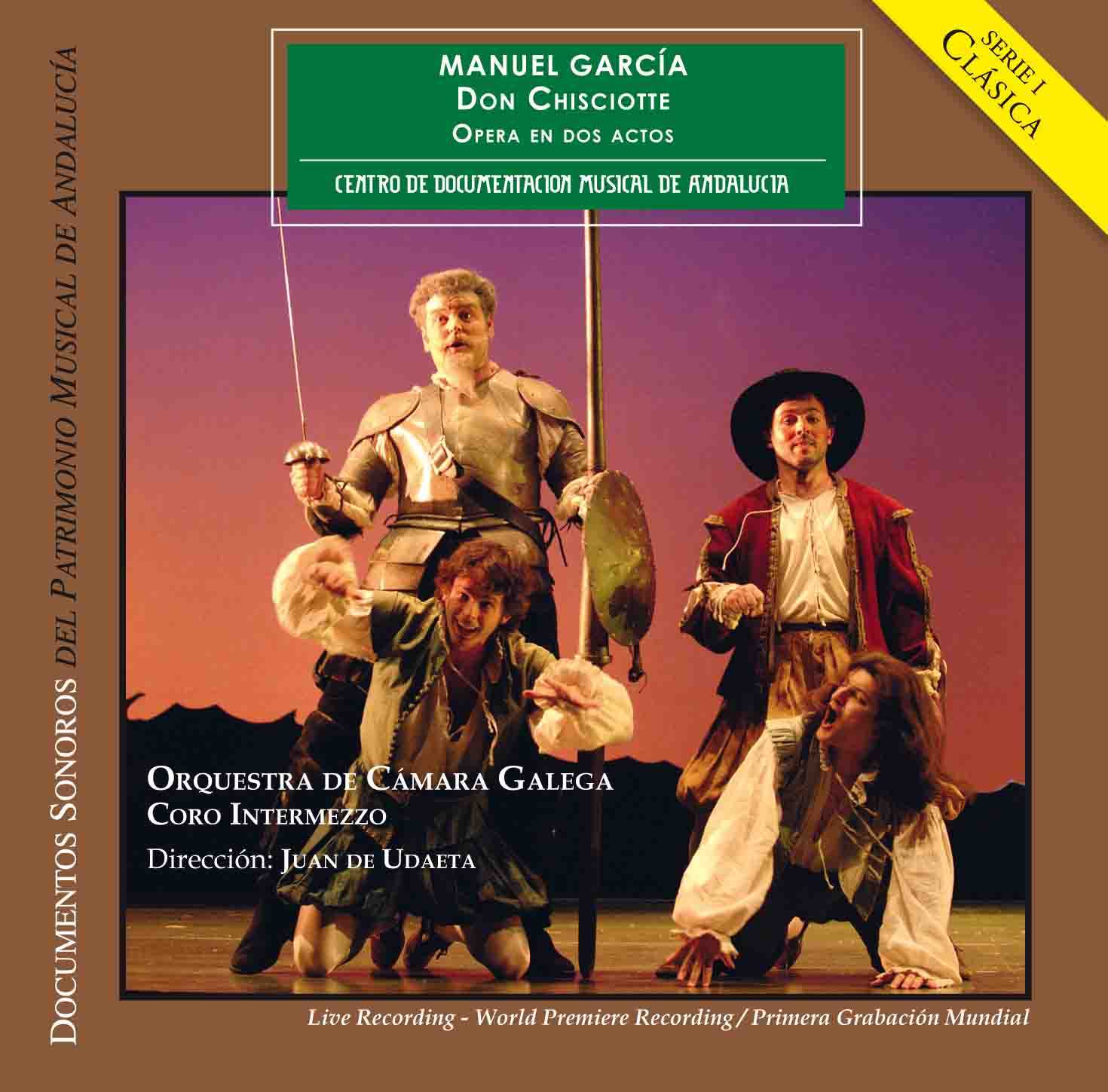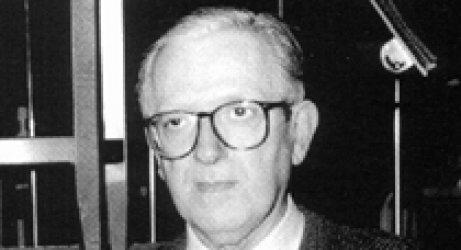Esparzas, Susurros y Sueños
Cuarteto Play FourCuarteto Play Four
The group “Play Four” started in 2010 with the opportunity to perform music composed for them by several women composers who attended the Cadiz Festival of Spanish Music. Their amazing skill made it possible for them to consolidate their position as a stable ensemble capable of performing any piece of music from the Standard Classical, Contemporary Classical and of course, Spanish repertories either written for this group or pre-existing. History has often ignored women. In the field of music, they are recognized as performers, teachers and it is women who impart folk and oral t...+ info
José Muñoz Molleda
Obras para OrquestaOrquesta de Córdoba
Conductor: José Luis Temes
JOSÉ MUÑOZ MOLLEDA: WORKS FOR ORCHESTRA In strictly chronological terms, José Muñoz Molleda must be considered a member of the so-called Generation of 27 (also the Silver Generation or the Generation of the Republic), because he borra in the sarne year (1905) as for example Ernesto Halffter, Emilio Lehmberg and Jesús Bal y Gay. Then, he was a year older than Gustavo Pittaluga and Simón Tapia-Colman (1906) and a little younger than Jesús García Leoz (1904), Evaristo Fernández Blanco and Rosa García Ascot (1902), Arturo D&...+ info
Don Chisciotte. Ópera en Dos Actos
AGOTADO - SOLD OUTOrquesta de Cámara Galega
Conductor: Juan de Udaeta
AGOTADO - SOLD OUT Manuel García The tenor, composer, impresario and singing teacher Manuel del Pópulo Vicente García (Seville, 21-I-1775; Paris, 10-VI-1832), was one of the most important figures in nineteenth-century Spanish music. The father of Pauline Viardot-García, María Felicia, the legendary Malibrán, and of Manuel Patricio García, and the inventor of the laryngoscope, he was one of the great personalities in European operatic life of the nineteenth century. Both Rossini’s and Mozart’s favourite perfor...+ info
Nuevo Disco: OBRAS PARA VIOLONCELLO Y PIANO. TRÃOS 1 Y 2. MANUEL CASTILLO
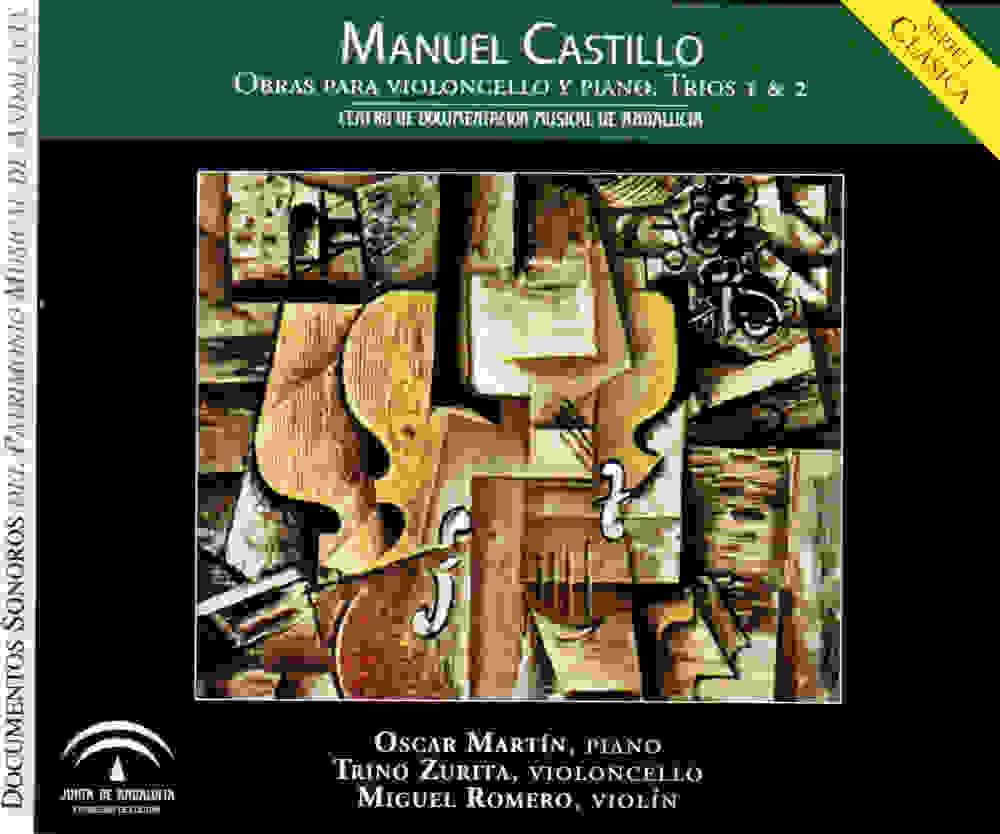
Almaviva
Almaviva aims to highlight the workof such illustrious Andalusians as Manuel de Falla and Joaquín Turina.
Edited
Junta de Andalucía. Consejería de Cultura
Coordinated
Centro de Documentación Musical de Andalucía
Produced
Agencia Andaluza de Instituciones Culturales
+ More
New in Almaviva
See the latest Almaviva.
Go to News
Buy our records
Shop in Almaviva all disks of our artists.
Simply access the Online Purchase section and select the disks you want.
In short time you will receive in your home.
Go to online Shopping


